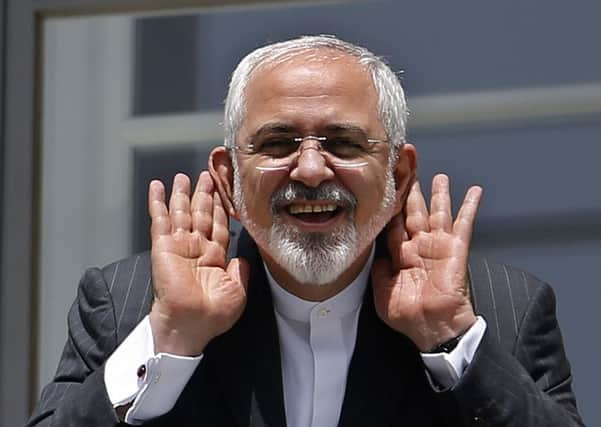Iran nuclear deal remains elusive as deadlines pass


Diplomats said at least two other issues still needed final agreement – Iran’s demand for a lifting of a UN arms embargo and its insistence that any UN Security Council resolution approving the deal be written in a way that stops describing Iran’s nuclear activities as illegal.
With a temporary deal set to expire at midnight last night, diplomats said they hoped to complete and announce a final agreement before day’s end at the talks in Vienna. But they warned there was no guarantee, and some said the talks could stretch into today despite there being little appetite for what would be a fourth extension of the interim agreement since the current round began on 27 June.
Advertisement
Hide AdAdvertisement
Hide AdForeign ministers from the countries negotiating with Iran declined to answer questions about another possible extension as they gathered for a group meeting at the 19th Century palace that has been hosting the talks.
“Definitely I believe there should not be an extension in the talks. But we can work to reach a result as far as it is necessary,” Iranian foreign minister Mohammad Javad Zarif said.
One of the diplomats said the delay posed by the disputes was unexpected, with negotiators expecting that they would be resolved by late Sunday.
Beyond placing long-term limits on Iran’s present nuclear programme, the US wants to ensure that the UN’s International Atomic Energy Agency (IAEA) has wide-ranging authority to investigate the nuclear arms allegations after nearly a decade of being essentially stalemated.
IAEA chief Yukiya Amano came back from Tehran and talks with Iranian leaders early this month saying that a new plan had been drawn up. Diplomats had earlier said that there was also progress within the Vienna negotiations. But the debate about how much access his experts should be given has publicly continued, with top Iranian officials saying military sites and Iranian nuclear scientists would be off-limits to IAEA experts.
Iran insists it never worked on such weapons and may also be resisting any mention of concessions on the probe in any public documents describing the deal.
Iran’s deputy foreign minister, Abbas Aragchi, told reporters in Vienna that the talks are at their “final breathtaking moments [but] certain issues still remain.” He said he could not guarantee an agreement would be reached either yesterday or today.
In Brussels, French President Francois Hollande said the sides are near agreement but “a gap” remains.
Advertisement
Hide AdAdvertisement
Hide AdThe foreign ministers of Russia and China, who had left the talks last week, both returned to the Austrian capital late on Sunday, and most other foreign ministers of the seven nations at the table also were in Vienna by yesterday, in place for any announcement. “The foreign ministers are gathered to bring negotiations to a conclusion,” said Chinese foreign minister Wang Yi.
“We believe there could not be further delay.”
After more than two weeks of see-saw developments, including threats from both the United States and Iran to walk away, senior officials at the talks had begun to express optimism on Sunday that a deal was within reach.